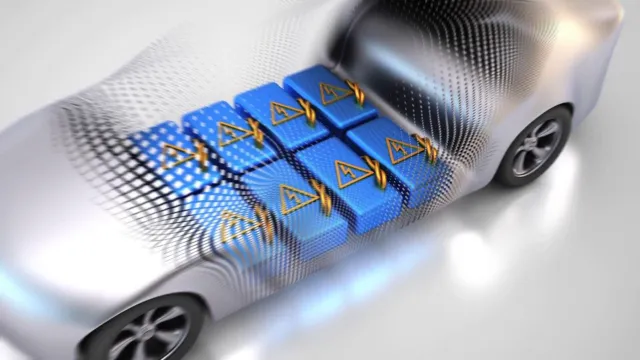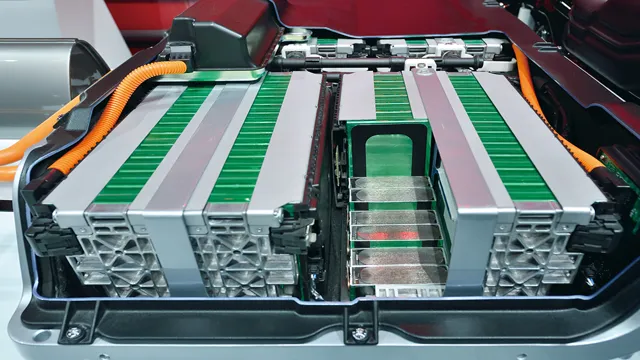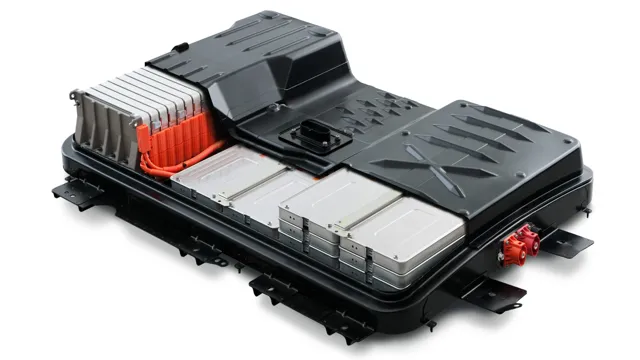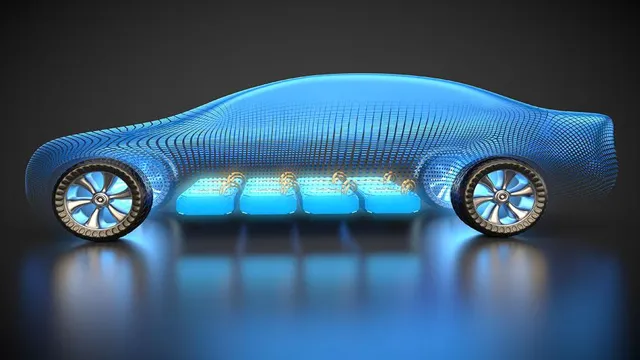Powering the Future: The Ultimate Guide to Car Batteries for Electric Cars
Electric cars are here to stay and their popularity is on the rise. As people become more conscious about the impact of their carbon footprint on the environment, there is a growing demand for cleaner and greener transportation options. Electric cars are emerging as the perfect solutions to the problems caused by gasoline vehicles.
They are emission-free, cost-efficient, and surprisingly fun to drive. While electric cars were once seen as a niche product, they are increasingly becoming a mainstream option. More and more car manufacturers are introducing electric vehicles to their lineup, and governments across the world are offering incentives for people to go electric.
As a result, the number of electric cars on our roads is growing at an incredible rate. In this blog, we will explore the rise of electric cars. We will discuss their benefits, their limitations, and their future potential.
We will look at the latest developments in the electric car industry and the challenges that still need to be addressed. So whether you are already driving an electric car or just curious about this exciting new technology, this is the blog for you. Join us as we discover the fascinating world of electric vehicles and what they mean for the future of transportation.
Why car batteries matter
Car batteries matter, especially in the context of electric cars. In traditional gasoline-powered cars, car batteries primarily serve to start the engine and run auxiliary systems. However, in electric cars, the battery is the primary source of power for the entire vehicle.
This means that the range, performance, and overall functionality of electric cars are significantly affected by the quality and capacity of their batteries. As a result, selecting the right car battery for your electric car is critical. It’s important to consider factors such as the battery’s capacity, charging time, and overall lifespan, and make sure it’s compatible with your specific electric car model.
Investing in a high-quality car battery can also result in long-term cost savings, as a good battery will perform better and last longer, reducing the need for frequent replacements and maintenance. So, whether you’re thinking about purchasing an electric car or upgrading your current car battery, it’s essential to understand just how important car batteries are to the overall performance and functionality of your vehicle.
Advantages of electric car batteries
Car batteries have always been an integral part of cars. However, with the advent of electric cars, car batteries have become even more essential. The advantages of electric car batteries are plentiful, both for the environment and the driver.
Firstly, they provide a much cleaner form of energy, as they don’t produce any harmful emissions. Secondly, they are much more cost-effective in the long run, as they require less maintenance and last much longer than traditional car batteries. Additionally, the use of electric car batteries can help to reduce our dependence on fossil fuels, which is crucial for the sustainability of our planet.
By using electric car batteries, we can also reduce our carbon footprint and preserve our environment for future generations. Overall, the use of electric car batteries offers many benefits, making them an excellent choice for anyone seeking an eco-friendly and cost-effective solution for their vehicles.
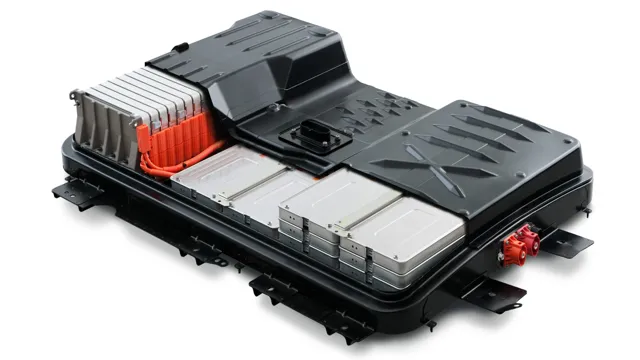
Challenges electric car batteries face
Electric car batteries are essential to the operation of electric vehicles, as they provide the necessary energy to power the motor. However, these batteries face several challenges that limit their performance and lifespan. One primary issue is their limited range, which affects the distance a vehicle can travel on a single charge.
This limitation is due to the current technology used in electric car batteries that relies on lithium-ion cells. Another challenge is the time it takes to charge the battery fully, which can take several hours compared to the quick refueling of a gas-powered vehicle. Additionally, extreme temperatures can affect the battery’s performance, causing it to degrade faster in hot climates and lose charge quicker in colder temperatures.
Manufacturers are continuously working on developing new battery technologies that address each of these issues to increase the efficiency and reliability of electric vehicles and make them more practical for daily use.
The future of electric car batteries
As the demand for electric cars continues to grow, so does the need for more efficient and long-lasting car batteries. The future of electric car batteries is looking bright, with advancements being made in battery technology that will allow for longer ranges and quicker charging times. The push towards solid-state batteries is gaining momentum, as they offer a much higher energy density than the current lithium-ion batteries used in most electric cars.
Additionally, researchers are exploring new materials for electrodes, such as silicon and sulfur, that could lead to batteries with even higher energy densities. With these new advancements, electric cars will become more convenient and accessible for everyday use, ultimately leading to a more sustainable future.
Innovations in electric car battery technology
Innovations in electric car battery technology have been rapidly evolving, and the future of this technology is looking more promising than ever. One of the most significant changes is the advent of solid-state batteries, which utilize a solid electrolyte instead of a liquid one. The benefits of this technology are numerous, including an ability to increase capacity while reducing weight.
Additionally, solid-state batteries are safer and longer-lasting, with better temperature control and resistance to degradation over time. Another exciting development is the use of nanotechnology, which allows for more densely packed batteries and faster charging times. These innovations are set to revolutionize the electric vehicle market, making it more accessible to a broader range of consumers.
With these advancements, electric vehicles are likely to become the norm rather than the exception, providing a more sustainable and environmentally friendly future.
Expected advancements in electric car batteries
Electric car batteries have already made significant strides in recent years, with advancements leading to greater range, faster charging times and better overall performance. However, the future promises even more exciting developments in this field. Researchers are currently working on solid-state batteries, which could potentially offer even greater energy density than lithium-ion batteries, as well as being safer and more environmentally friendly.
Other advancements include using silicon to increase the amount of energy that can be stored in each battery, as well as exploring the potential of new materials such as graphene. With these developments in the pipeline, it’s clear that the era of electric vehicles is just getting started. As these technologies continue to evolve and improve, we’ll see electric vehicles become more accessible and widespread, helping to reduce our dependence on fossil fuels and pave the way for a more sustainable future.
The potential impact of electric car batteries on the environment
Electric car batteries have the potential to revolutionize the automotive industry, but they also have the potential to impact the environment. As more and more drivers make the switch to electric cars, the demand for batteries will continue to grow. The good news is that the future of electric car batteries looks bright.
Innovations in battery technology are making batteries last longer and charge faster, and companies are recycling old batteries to reduce waste. Additionally, companies are exploring alternative battery materials, such as zinc and sodium, which are more abundant and less expensive than traditional lithium-ion batteries.Overall, the potential impact of electric car batteries on the environment will depend on how these innovations are implemented and how effectively they are able to balance the demand for energy with the need to protect our planet.
It’s encouraging to see so many companies and individuals committed to finding solutions that are sustainable and eco-friendly, and it’s exciting to think about the possibilities that electric car batteries hold for the future!
Choosing the right car battery for your electric car
Car batteries for electric cars are a crucial component that requires careful selection. Electric cars rely entirely on their batteries to power their motors, so selecting the right one is essential for optimal vehicle performance and longevity. A high-quality car battery should have a longer lifespan, provide sufficient power, and be rechargeable.
Additionally, it would be best to select a battery that is compatible with your vehicle’s specifications and requirements. The battery’s charge times and range should also be taken into account when purchasing as they will impact the car’s overall performance and usage. With an array of options available, it’s essential to research and select a high-quality battery, ensuring that it suits your vehicle’s unique specifications.
Factors to consider when selecting an electric car battery
When it comes to selecting the right battery for your electric car, there are a few key factors to consider. First and foremost, you’ll want to think about the range of your vehicle. How far do you typically drive in a day? Make sure the battery you choose can keep up with your needs.
You’ll also want to look at the charging time and efficiency of the battery, as well as its overall lifespan. It’s important to keep in mind that different electric car models require different types of batteries, so be sure to do your research and choose one that’s compatible with your particular vehicle. By taking all of these factors into account, you can select a battery that provides the performance and reliability you need to hit the road with confidence.
Popular car battery brands for electric cars
When it comes to choosing the right car battery for your electric car, there are several factors to consider. Firstly, it is important to look for a brand that provides high-quality and long-lasting batteries. Some of the most popular car battery brands for electric cars include Tesla, LG Chem, and Panasonic.
Tesla’s electric car batteries are well-known for their quality and performance, while LG Chem and Panasonic offer batteries that are known for their extended range and reliability. Another important factor to consider is the battery’s capacity and charging time. A high-capacity battery will give you a longer driving range, while a quick-charging feature will ensure that your electric car is always ready to hit the road.
Overall, it is important to do your research and choose a car battery that suits your specific needs and driving habits.
Conclusion: the important role of car batteries in the electric car revolution
In the exciting world of electric cars, the importance of the humble car battery cannot be underestimated. Without these little powerhouses, our electric vehicles would be nothing but glorified paperweights. So, whether you’re zipping around the city streets in a sleek sports car, or taking a leisurely drive in a spacious SUV, remember to give a little thanks to your trusty car battery.
After all, these silent heroes are the unsung champions of our electric revolution.”
FAQs
Can electric cars use regular car batteries?
No, electric cars require specialized lithium-ion batteries that are designed to handle the high voltage and current demands of electric motors.
How long do electric car batteries last?
Electric car batteries typically last for several years and can be recharged thousands of times before needing to be replaced. The lifespan of a battery depends on factors like the make and model of the car, as well as driving habits and climate conditions.
Are electric car batteries recyclable?
Yes, most electric car batteries are recyclable. The materials used in these batteries, such as lithium and cobalt, can be extracted and reused to make new batteries or other products.
Is it expensive to replace an electric car battery?
Yes, replacing an electric car battery can be expensive, with costs ranging from several thousand to tens of thousands of dollars depending on the make and model of the car. However, many manufacturers offer warranties or subsidized replacement programs to help offset these costs.
